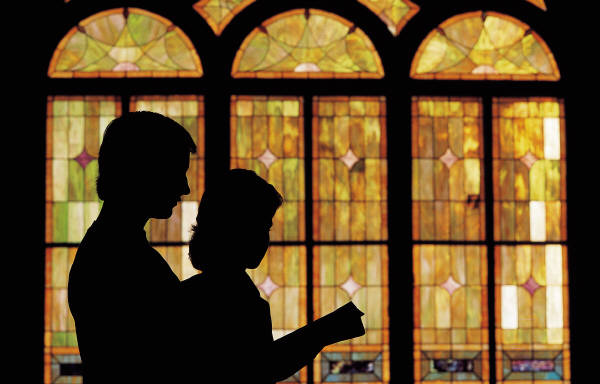More Women Are Leaving Behind Religious Identities For Something More Spiritual
(RNS) Nadia Bulkin, 27, the daughter of a Muslim father and a Christian mother, spends “zero time” thinking about God.
And she finds that among her friends — both guys and gals — many are just as spiritually disconnected.
Surveys have long shown women lead more active lives of faith than men, and that millennials are less interested than earlier generations. One in three now claim no religious identity.
What may be new is that more women, generation by generation, are moving in the direction of men — away from faith, religious commitment, even away from vaguely spiritual views like “a deep sense of wonder about the universe,” according to some surveys.
Michaela Bruzzese, 46, is a Mass-every-week Catholic, just like her mother, but she sees few of her Gen X peers in the pews.
“I have women friends who grew up Catholic who think my choice to stay Catholic is like I choose to keep believing in Santa Claus. They just don’t get what is in the church for me,” said Bruzzese.
“For me, Catholicism is a verb — it is the action of being in the world and trying to live the gospel,” said Bruzzese, who teaches theology at a Catholic high school in Albuquerque, N.M. Many of her students go home to parents who no longer observe the faith.
That fits with the findings of the Center for Applied Research in the Apostolate, which tracks Catholic faith and practice.
In 1974, CARA research found 46 percent of men and 45 percent of women considered themselves to be “strong Catholics.” By 2012, both groups had dropped significantly on that question — men to 24 percent and women to 30 percent.
On the rise: Those who call themselves “not very strong” Catholics. That self-description by men climbed to 67 percent in 2012, up from 44 percent 1974. Among women, 57 percent said their faith was “not very strong,” up from 43 percent 40 years ago.

Senior researcher Mark Gray, director of CARA polls, sees “some evidence of a closing ‘gender gap’ but I’m not sure…



